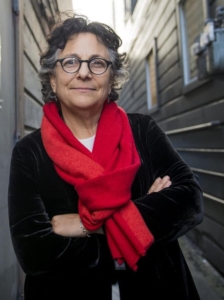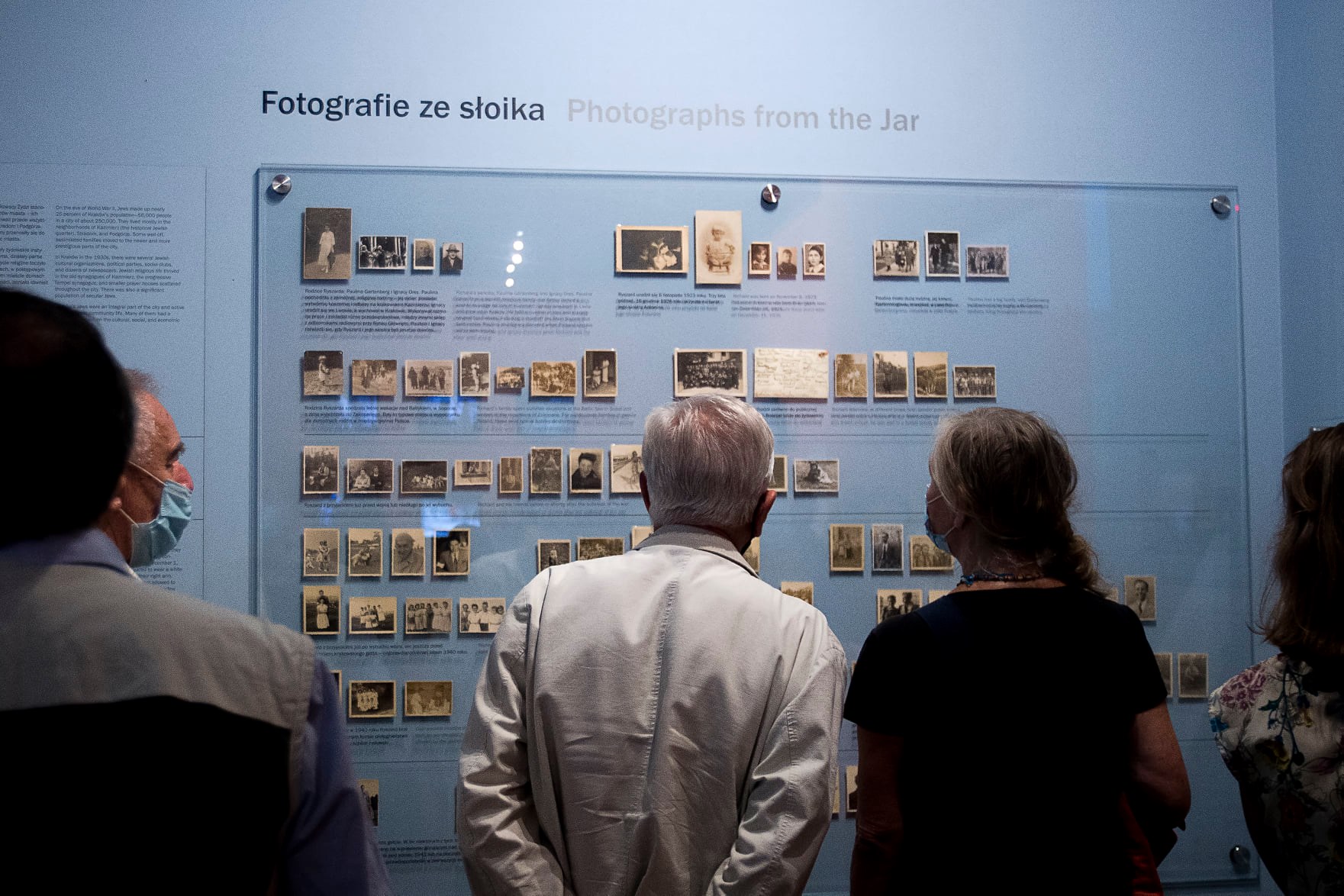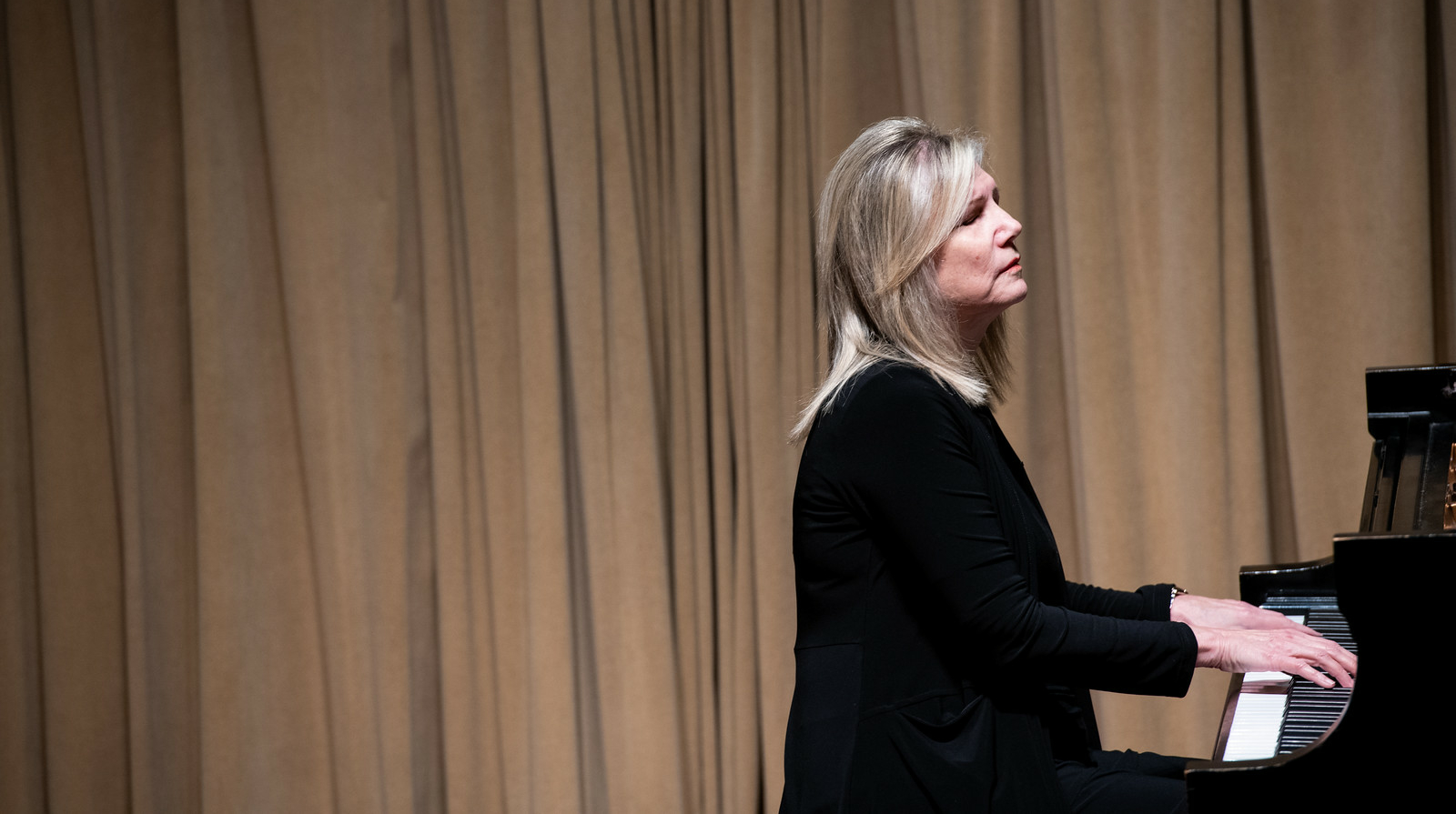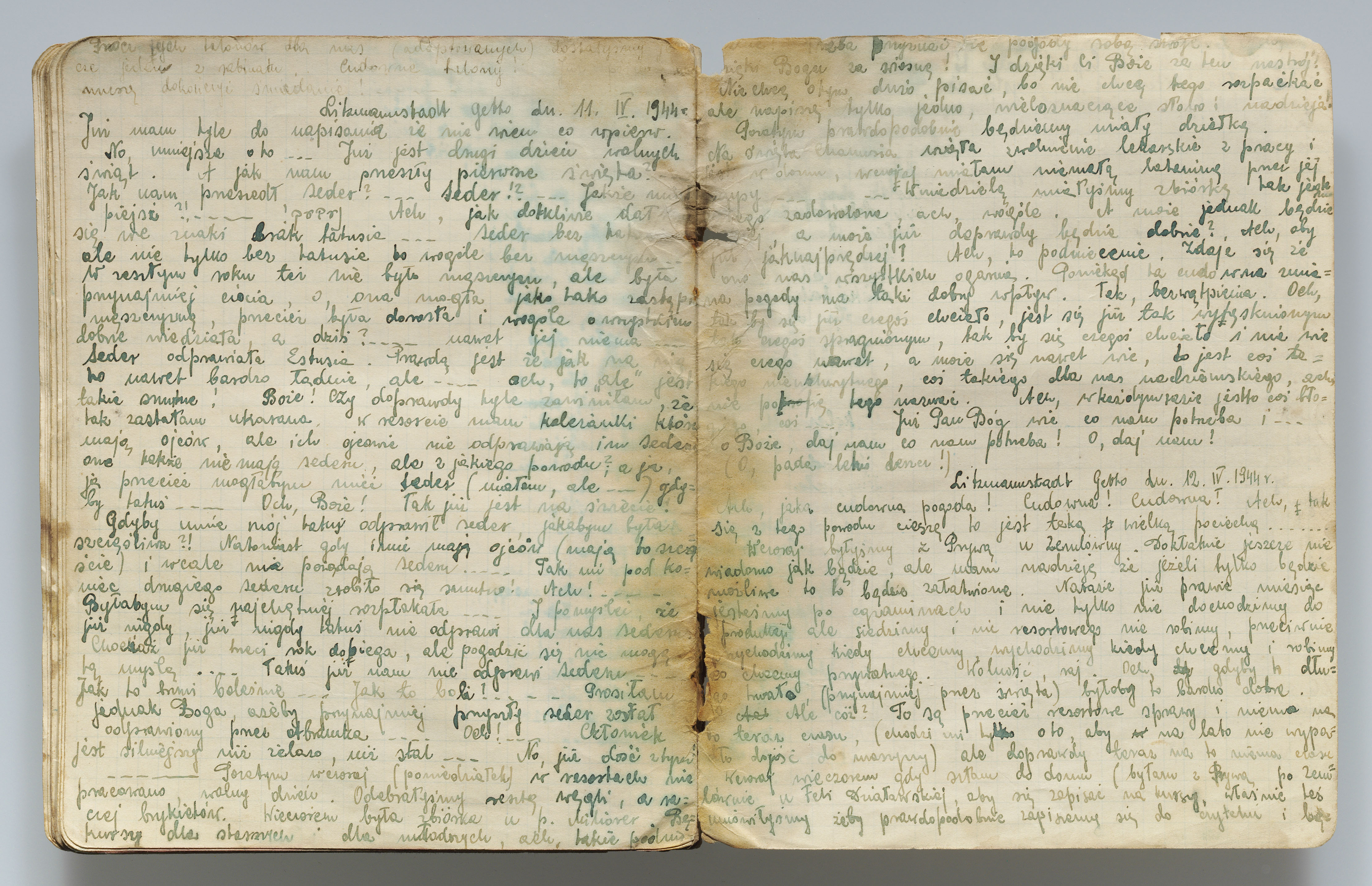Above: Meredith Monk in Twelve Pieces explores the work and influence of Meredith Monk, who has been composing, singing, choreographing, and innovating for stage and screen for six decades.
Jewish Story Partners (JSP) is a relatively new grantee, because JSP itself is new. JSP supports the making of films that tell Jewish stories—of experiences, cultures, and encounters—from fresh perspectives. Film is a universal language, an extraordinary way to engage emotions, reach diverse audiences, build empathy, and provoke thought. Filmmaking is hard work, and Jewish films are a niche market. JSP is the only organization dedicated to offering filmmakers financial and moral support for their “Sisyphean task.” Through film, JSP aims “to ignite understanding and spark dialogue among Jews and non-Jews alike.” JSP is uniquely positioned to cinematically celebrate the diversity in Jewish stories.
Koret shares JSP’s belief that art and narrative media are powerful tools for promoting Jewish Peoplehood. We have long supported the telling and preserving of Jewish stories in diverse forms, including exhibitions, high-tech learning tools, online curricula, and educational films. At the Galicia Jewish Museum in Kraków, Poland, Koret championed the exhibition The Girl in the Diary: Searching for Rywka from the Łódź Ghetto, inspired by the diary of Rywka Lipszyc. Closer to home, we have supported The Willesden Project, an exciting collaboration between the USC Shoah Foundation and the Hold On To Your Music Foundation. The project develops story-based programming to teach students about the Holocaust and to stimulate thinking about parallels to modern-day issues. And we supported Ken Burns’ US and the Holocaust documentary for PBS, as well as related classroom materials.

Koret supported JSP’s launch in 2021, and have subsequently extended our support, impressed by JSP’s co-executive directors’—Roberta Grossman and Caroline Libresco—dedication and experience in filmmaking. As career filmmakers, curators, connectors, mentors, and media mavens, both are accomplished practitioners of film’s power to generate empathy and understanding.
Jewish Story Partners in its first two years has already helped fund 85 films—rigorously selected from well over 700 applications received. As Grossman observes, “I guess Jews like to make films! Film is the storytelling medium of our time, and Jews have been storytellers for thousands of years.” We recently had a chance to speak with her about funding films, supporting filmmakers, and maximizing impact.
Jewish Story Partners
Accomplishments 2021-2023
“There is no monolithic ‘Jewish People.’ We uplift a multiplicity of stories to reflect the full range of who we are, who we’ve been, and who we’re becoming.”
Total grants awarded
$2,460,000
Hours of advisory support to grantees
200+
JSP Grantmaking at a glance
Applications received
733
Projects supported
85
Projects released to audiences
19
KF: It was eye-opening to us that you have received over 700 applications. We appreciate the need and the value of supporting films about the Jewish experience, but were you surprised by the volume of interest from filmmakers?
Yes, we were surprised by the volume of applications—and pleased by the breadth of ideas and quality of proposed projects. Jewish film festivals may get 400 films a year applying, and I’m talking about even the Littlest Town Outside of Poughkeepsie Jewish Film Festival—and they have to go through the same selection process that we do. So there are a lot of Jewish filmmakers—and filmmakers telling Jewish stories.
KF: When a filmmaker wants to make a film that is in some way Jewish, what are their options for funding it and then for getting it into the world? This seems like a very ambitious undertaking.
For the filmmaker, it is ambitious—or insane. Making a documentary film—from conception through to distribution—is a Sisyphean task. The way I look at it is this: unless you feel that you are the only person who could tell this story, or that you will actually die if you don’t make the film—don’t start. It has to be that important to you. That’s the kind of passion you need to push that rock uphill, to raise the money to make the film. It’s very hard to tell a good story on film. And then figuring out how to distribute it. These days, it takes over a million dollars to make a really great Class A documentary. Actually, I think that we are seeding the field. Because Jewish Story Partners exists, filmmakers are thinking about the possibilities more deeply, about whether there’s a Jewish story that they want to tell.
KF: We are still thinking about the over 700 applications you have received. Can you tell us a bit about your selection process?
Our initial process is much like the process that Caroline, my co-executive director, ran at Sundance for two decades, to get to a shortlist. Every project is given a great deal of respect and very carefully considered. There are four of us in-house who watch everything multiple times, all of the submitted footage applicants provide. We don’t fund just ideas—ideally the footage conveys how the filmmaker applicant intends to tell their story, both visually and content-wise. And, of course, a project has to have Jewish content. The projects that the four of us collectively rate the highest get sent to the jury, which makes final granting decisions. Our jury panels are made up of different eminent professionals in the field for each grant cycle.
KF: After Jewish Story Partners awards a grant to a filmmaker, what are your next points of contact or involvement?
We are very actively involved, providing a continuum of multi-layered support in the hopes of giving every film we grant the best chance of fulfilling its own promise. Caroline and I watch cuts that filmmakers want to share with us at many stages along the way, from development to post-production. We give in-depth feedback, and if we feel we are not the right people to advise a filmmaker, we connect them with excellent editors or directors or producers. We pay these people to consult with the filmmakers. When we hire experts to advise grantees, their fees do not come out of the filmmakers’ grants—it’s an additional aspect of JSP’s support. Some filmmakers don’t need this support, because they’re so experienced.
KF: And what defines ‘success’ for films that JSP decides to fund?
Each film has its own fate, rooted in what the film is, what the filmmaker wants, how successful the film turns out to be. For some filmmakers, their goal is to have their film be seen by as many people as possible. But other filmmakers have a core audience in mind and they’re satisfied if it reaches that core audience. And that is not up to us. We’re a grantmaking organization. We are not prescriptive, we are not looking for a specific thing. We’re trying to respond to filmmakers and to fund a range of films. We don’t want to just fund commercial films—those that will most likely be picked up by streamers, though many of the films we’ve funded do end up on streaming platforms. Other films we’ve funded will be broadcast on PBS strands such as American Masters. Others may be seen primarily in educational settings. There is a big range.
In the case of the exquisitely poignant A Still Small Voice, to which JSP was the first funder, success has been multi-pronged. Not only did the film win director Luke Lorentzen the coveted Directing Prize at the 2023 Sundance Film Festival—arguably the most prestigious documentary launch festival in the world—but it has also had a multi-city theatrical release, was short-listed for the Oscar for Best Documentary, and has received a host of glowing reviews. Likely next steps will be securing streaming and/or broadcast engagements, as well as widespread educational and community distribution.
KF: And how do films you fund that have a strong educational component get distributed? How do audiences find out about them?
We are excited about our new partnership with Good Docs, which specializes in non-theatrical distribution. Good Docs serves as an educational distributor—to universities, libraries, museums—and also to community organizations, religious institutions, and community centers, to any entity that wants to screen a film, that’s not a theater, festival, streamer or broadcaster. Good Docs has a database of 600,000 potential customers, and a highly respected marketing team. Caroline and I have both worked with Good Docs on our own films, so we have a lot of faith in them. In 2023, JSP launched our Education Impact Program, for which we annually underwrite 600 screenings of three JSP films free of charge to educational organizations through Good Docs. We also pay a stipend to those three filmmakers, and work with them to develop ‘conversation guides’ that Good Docs makes available to the screening institutions. Our goal is always to help JSP films get out into the world where they can have impact—that’s the whole point.
KF: Can you give us a sense of how Good Docs helps a film ‘achieve’ its intended impact?
I can give you a firsthand example. I had written and directed a film called Reckonings: The First Reparations, a feature-length documentary funded by the German government and the Claims Conference on Material Claims Against Germany, which was formed to negotiate reparations to individual Jews who had been persecuted during the Holocaust. I suggested that the Claims Conference work with Good Docs for educational distribution, because their goal was not income—it was educational screenings. They paid Good Docs a reasonable—but relatively small—sum, and at this point, Good Docs has arranged around 500 screenings for Reckonings. JSP is proud of our first cohort of education-impact films, which are going out now.
KF: This seems like an extraordinary opportunity for the selected films. Would you reflect a bit for us on the diversity of Jewish stories these three films represent?
Together, they mirror our overarching mission to support projects reflecting the range of Jewish experiences, cultures, and encounters. Set in different times, places, and milieus, each film tells a very different story about Jewish life. Yet they are united in their intimate, nuanced portrayal of characters and in the originality and ingenuity of their cinematic storytelling. Last Flight Home is a raw and tender journey with a filmmaker’s American Jewish family as they confront the last days of their beloved patriarch’s life. They immerse themselves in profound questions about how to die with dignity and how to integrate Jewish ritual into the process. Egypt, A Love Song is a deeply personal film that illuminates the untold story of Jewish-Arab immigrants to Israel. The story uncovers and animates the filmmaker’s Egyptian grandmother—a woman whose glamorous life as a chanteuse shifted radically upon arriving in the Holy Land. Finally, The Wild One traces the ripple effects of the Holocaust by delving into the life of French actor/director Jack Garfein, whose survivor experience permeated and electrified his renowned work.





